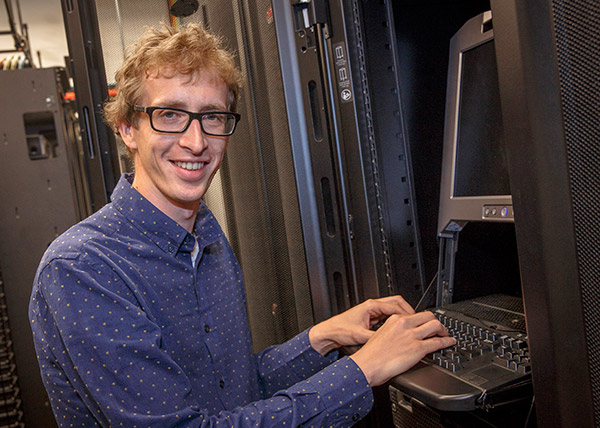Accolades: Chemistry Paper Hits the Top 10; Professor Earns Award
By: Office of Media Relations | May 7, 2018
Accolades is an occasional News Center feature that highlights recent accomplishments of UT Dallas faculty and students. To submit items for consideration, contact your school’s communication manager.
Prasad Paper Makes Chemistry Top 10 List in Scientific Reports

Badrinath Jagannath (left) and Dr. Shalini Prasad are two of the study’s authors.
A research study conducted by UT Dallas scientists has been recognized as one of the 10 most read chemistry papers appearing in Scientific Reports in 2017.
Dr. Shalini Prasad, professor of bioengineering and a Cecil H. and Ida Green Professor in Systems Biology Science in the Erik Jonsson School of Engineering and Computer Science, was the senior author of “A new paradigm in sweat based wearable diagnostics biosensors using Room Temperature Ionic Liquids (RTILs).” The article described a sensor that measures three diabetes-related compounds in microscopic amounts of perspiration.
Other researchers credited on the work include lead author Rujuta Munje PhD’16, a UT Dallas bioengineering graduate; Dr. Sriram Muthukumar, adjunct associate professor of materials engineering; and Badrinath Jagannath, bioengineering research assistant.
Their work demonstrated that less expensive technology could be implemented for monitoring the compounds, and that a smaller amount of sweat than previously demonstrated — and no blood at all — could be used to obtain valid diabetic data.
Scientific Reports published more than 5,000 chemistry papers in 2017. The UT Dallas paper ranked ninth in page views.
Engineer Receives Young Investigator Award

Dr. William Vandenberghe
Dr. William Vandenberghe, assistant professor of materials science and engineering, has been awarded the Defense Threat Reduction Agency’s Young Investigator Award for his work on nanoscale electronic circuits.
The research grant provides $100,000 per year for at least three years, with an option to extend for two more years. The agency, part of the Department of Defense, supports basic research related to reducing, eliminating and countering the threat and effects from weapons of mass destruction.
Vandenberghe’s research focuses on the study of electron transport at the nanoscale level using theoretical methods and computer modeling. His work includes the use of two-dimensional materials and topological insulators for new devices.
Vandenberghe said his research is tied mostly to semiconductor industry and military applications of nanoscale electronics used in smartphones, tablets and computers. He uses computers to model the configuration of atoms in novel materials and predict what properties those materials will have.
“I model materials made by an experimental group, then change the model in some way, on an atomic level,” he said. “I will then ‘run’ the experiment on my computer before an experiment is conducted in real life, which can save businesses or government agencies time and money.”
Vandenberghe’s research is also funded by the National Science Foundation, the Taiwan Semiconductor Manufacturing Company and Texas Instruments.
Media Contact: The Office of Communications and Marketing, or the Office of Media Relations, UT Dallas, (972) 883-2155, newscenter@utdallas.edu.





